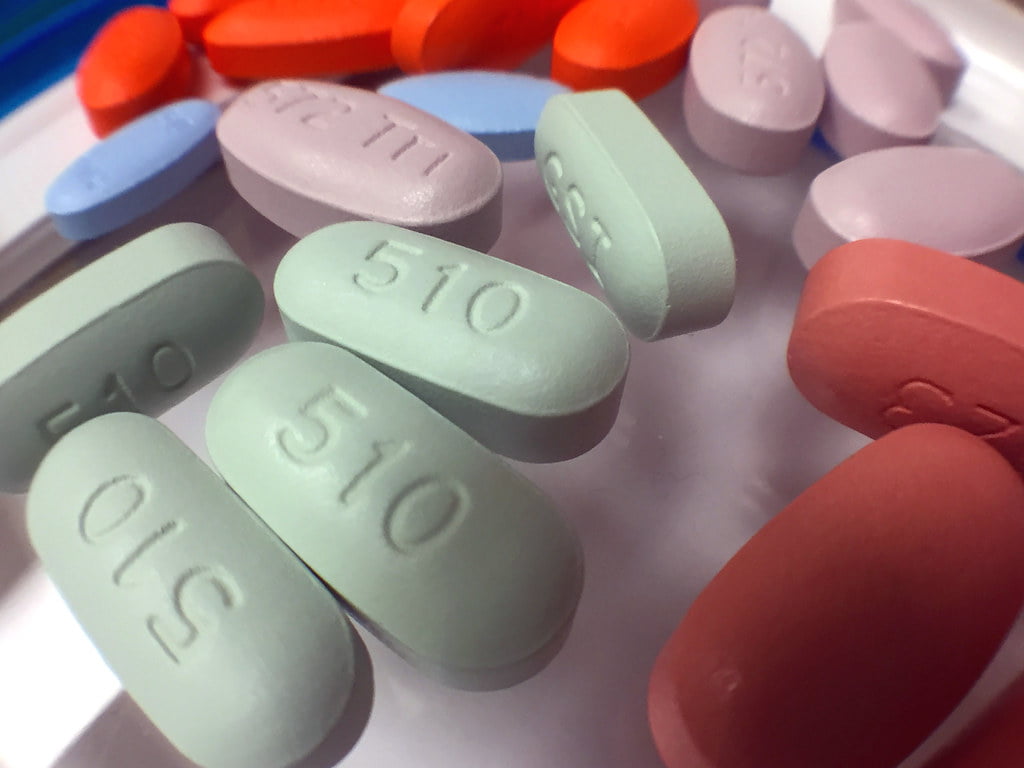The world’s largest-ever clinical trial of treatments to slow or stop the progression of Parkinson’s disease has launched, led by researchers at UCL and Newcastle University.
The £26 million project is accelerating the search for…

The world’s largest-ever clinical trial of treatments to slow or stop the progression of Parkinson’s disease has launched, led by researchers at UCL and Newcastle University.
The £26 million project is accelerating the search for…

Anthropic PBC wants to make artificial intelligence agents more effective when it comes to doing real work, and its latest idea is to provide them with additional “skills” that can help them when assigned a very specific task.
The…

Dengue has been a public health problem in the tropical world for decades and 2024 saw a global dengue surge, with more than 14 million cases and 10 thousand deaths reported worldwide – more than more double the figures for dengue…

Bolton is now the third Trump adversary prosecuted in the last…

Australia Post incorrectly collected tariffs from customers returning items to the US after retail parcel services to the country resumed last week, the government-owned postal service has admitted.
Australia Post said it had identified an error with a third-party provider where “a number of customers” were incorrectly charged a tariff for postal returns of US-manufactured items, which should not be subject to import duties.
“The error was quickly fixed, and we are reaching out to impacted customers,” a spokesperson said in a statement.
Parcel services were halted in August when the US suspended the “de minimis” exemption, which allowed parcels worth less than US$800 to enter the country duty-free. Business services resumed on 22 September, followed by retail on 7 October.
US Customs and Border Protection (CBP) has advised Australia Post that Donald Trump’s new tariff regime also applies to online returns to the US, with the tariff calculated according to the goods’ country of origin.
That means a postal return for an item originally ordered from the US, but made in China, could be subject to tariffs imposed on Chinese goods if declared correctly. CBP was not immediately available for comment.
Sign up: AU Breaking News email
Guardian Australia shared images with Australia Post of a post office terminal showing an item with the US as its country of origin incurring an import duty of $57.17 on an item worth $357.30 – a rate of about 16%.
This was in addition to postage and a small handling fee divided between Australia Post and a third party which pays the tariff to US customs.
It is understood Australia Post was not aware of the error until then.
Under Donald Trump’s so-called “liberation day” duties, which came into effect in April, Australian goods imported into the US should attract a baseline 10% tariff. The tariffs do not apply to gifts worth less than $US100, or about $A150.
In July, Trump signed an executive order to end the “de minimis” exemption on 29 August. Australia Post suspended several postal services to the US and Puerto Rico, as did other international carriers.
At the time, the federal communications minister, Annika Wells, who oversees the postal service, distanced the government from what she described as an “operational decision”, urging Australia Post to seek a workaround.
A spokesperson for Australia Post said it had “worked at pace” to find a solution that complied with new rules.
On the day it suspended postage, the mail carrier informed its business customers it had partnered with the American company Zonos – one of only two companies then rubber-stamped to facilitate the payment of tariffs, although more have been approved since.
Guardian Australia understands the recent error for retail customers resulted from an incorrectly applied code by another third-party company based overseas.
Wells was contacted for comment.
This request seems a bit unusual, so we need to confirm that you’re human. Please press and hold the button until it turns completely green. Thank you for your cooperation!

MSD’s investigational two-drug HIV combination has been proven safe, efficacious and non-inferior to current standard of care (SoC) in two Phase III trials.
During the MK-8591A-052 study (NCT05630755), patients treated with DOR/ISL, a combination of MSD’s marketed antiretroviral, Pifeltro (doravirine) plus investigational medication islatravir, maintained vital suppression and demonstrated non-inferiority to SoC of bictegravir/emtricitabine/tenofovir alafenamide (BIC/FTC/TAF).
There was also negligible impacts on both weight and body composition at week 48, with a mean weight drop of 0.03kg compared with baseline, while those who continued on BIC/FTC/TAF experienced a 0.28kg weight gain. Throughout the study period, 14.6% of those given DOR/ISL experienced a ≥5% weight gain, while 16.0% experienced this in the SoC group from baseline.
Meanwhile, in both the MK-8591A-051 (NCT05631093) and MK-8591A-052 trials, patients who switched to DOR/ISL from Biktarvy experienced no clinically meaningful changes in fasting lipids. This includes total cholesterol, as well as low- and high-density lipoprotein (HDL, LDL) and triglyceride levels.
Mean blood glucose and fasting insulin level changes were also minimal across treatment groups in both studies.
These findings are notable as chronic antiretroviral use can often cause weight gain or changes to body composition, as well as dyslipidaemia – all of which can contribute to a patient’s risk of developing comorbid cardiovascular conditions.
According to Dr Chloe Orkin, dean for healthcare transformation, Queen Mary University of London, the Phase III findings are “important to consider,” as many patients with HIV face weight-related issues such as obesity.
These results follow MSD’s previous positive Phase III readouts for Pifeltro-islatravir, which prompted the New Jersey pharma to file a new drug application (NDA) for the combination to the US Food and Drug Administration (FDA). The target action date for the application is the 28 April 2026.
If approved, the combination would become the first two-drug regimen without an integrase inhibitor to get the regulatory green light in HIV.
Anaelle Tannen, infectious disease analyst at GlobalData, noted that this could be a “particularly important development for older patients with comorbid conditions,” as a two-drug regimen is associated with lower toxicities relative to the three-drug alternative.
However, Tannen caveated that Biktarvy will likely remain the SoC due to “physician familiarity and the drug’s strong efficacy and safety profile”.
“DOR/ISL is an oral daily drug, so it doesn’t have a benefit in terms of less frequent dosing, and islatravir itself has been associated with lymphocytopenia toxicity in previous trials,” Tannen said. “However, Biktarvy has been connected with weight gain and if DOR/ISL doesn’t have this side-effect, patients may prefer this option.”
However, penetrating Biktarvy’s market share could be a tough nut to crack for MSD, known as Merck in the US, as the drug currently holds the market-leading spot in the first-line HIV setting. Analysts at GlobalData also forecast that Biktarvy will remain in the top spot over the forecast period, with sales exceeding $11.6bn in the US alone by 2033.
GlobalData is the parent company of Clinical Trials Arena.
Meanwhile, Pifeltro-islatravir will reach blockbuster status by 2030, with the combination estimated to pull in $1.7bn by 2033, as per a patient-based forecast from analysts at GlobalData.
However, islatravir could have another shot at glory on the HIV market, as two Phase III trials are currently assessing islatravir plus Gilead’s HIV drug, Sunlenca (lenacapavir). The combination was recently found to maintain viral suppression for two years when administered orally once-weekly in a Phase II trial.
If approved, the Sunlenca-islatravir duo could become the first weekly oral treatment option for patients with HIV, which could boost medication adherence and administration convenience.
By Annabel Kartal Allen
Source : Clinical Trials Arena

When biomedical researchers need to test their latest ideas, they often turn to engineered human tissue that mimics the responses in our own bodies. It’s become an important intermediary step before human clinical trials.
One…

There is no safe amount of alcohol consumption when it comes to your risk for dementia, according to a recent study.
While past research has suggested that moderate alcohol consumption may even be associated with some health benefits, more recent…